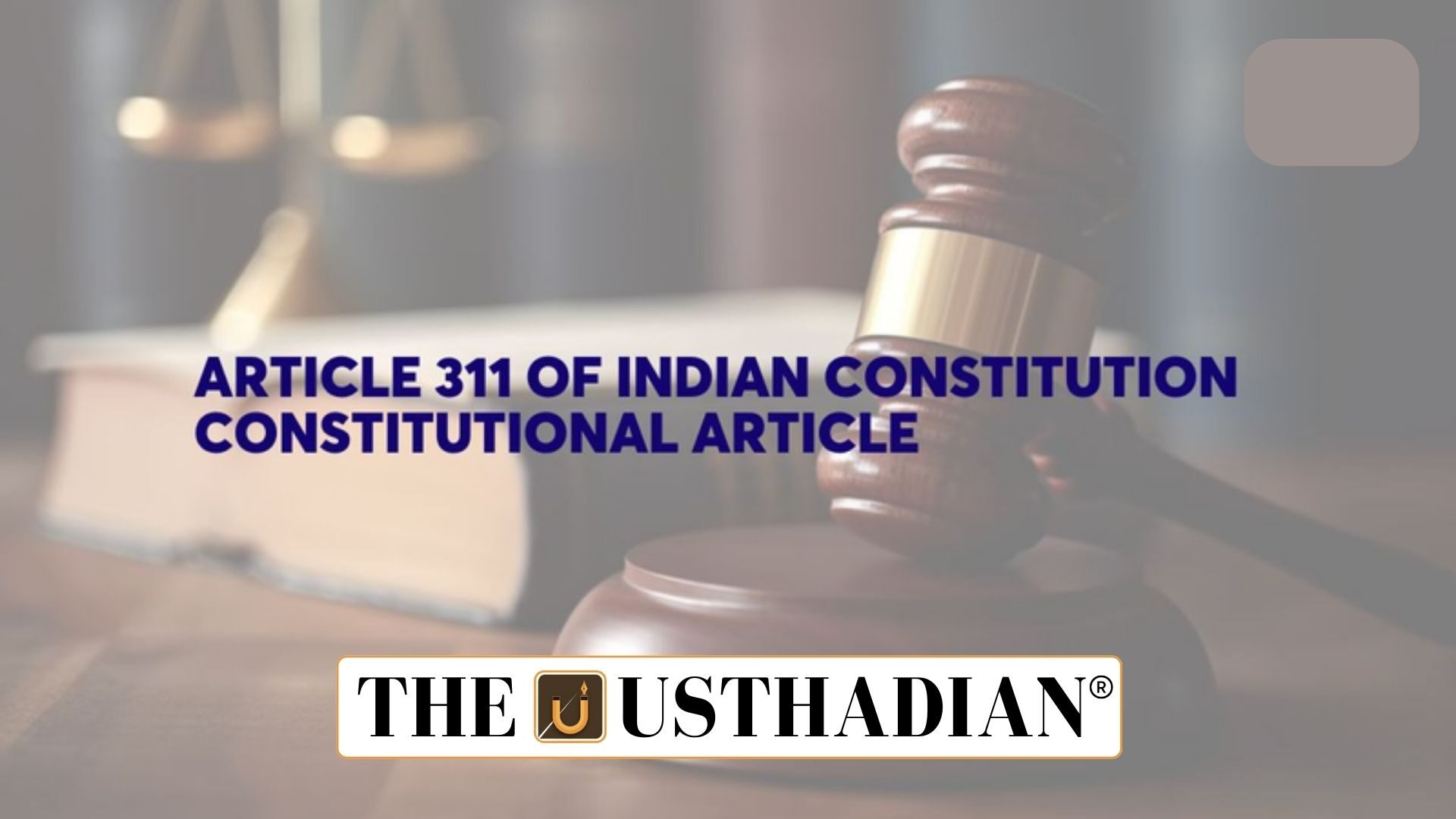Recent case
Article 311 and Civil Servant Safeguards: The Government of Jammu and Kashmir recently terminated the services of two employees accused of terror involvement. This action was taken using the powers granted under Article 311 (2)(c) of the Constitution, which permits dismissal without inquiry in cases linked to security of the State.
Meaning of Article 311
Article 311 provides rules regarding removal, dismissal, or demotion of government employees working under the Union or State. Its purpose is to prevent arbitrary use of power by ensuring procedural fairness.
Safeguards for employees
Appointment and authority
Under Article 311 (1), no officer can be dismissed or removed by anyone lower than the authority who appointed them. This prevents misuse of power by junior officers.
Inquiry rights
Article 311 (2) ensures that an employee cannot be dismissed or reduced in rank unless they are first told the charges against them and given a reasonable chance to defend themselves. This rule reflects the principle of natural justice.
When inquiry is not required
Certain exceptions allow the government to act without following the inquiry process:
- When conducting an inquiry is not practical.
- When continuing an employee is considered a threat to State security.
- When the person is convicted of a criminal offence.
The recent J&K case falls under the security exception, allowing immediate dismissal without a formal hearing.
Static GK fact: Article 311 falls under Part XIV of the Constitution, which deals with Services under the Union and States.
Background of the provision
This article was included to strike a balance between government control and protection of employees. While it safeguards civil servants from arbitrary removals, it also gives the State enough authority to maintain discipline and security.
Static GK tip: The system of service protections in India was influenced by the colonial-era Indian Civil Services, which formed the backbone of administration during British rule.
Importance in present times
Article 311 continues to remain significant in ensuring that civil servants work without fear of sudden dismissal. At the same time, it highlights how the government can act decisively in cases involving security risks or criminal conduct. The recent J&K dismissals underline the delicate balance between individual rights and national security priorities.
Static Usthadian Current Affairs Table
Article 311 and Civil Servant Safeguards:
| Topic | Detail |
| Article 311 | Deals with dismissal, removal, or reduction in rank of civil servants |
| Article 311 (1) | No dismissal by authority subordinate to appointing authority |
| Article 311 (2) | Inquiry and fair hearing required before dismissal |
| Article 311 (2)(c) | Inquiry can be skipped if State security is involved |
| J&K case | Two employees dismissed for alleged terror links |
| Location of Article 311 | Part XIV of Indian Constitution |
| Natural justice | Principle of fair hearing and prior notice |
| Exception grounds | Security of State, impracticability of inquiry, criminal conviction |
| Historical influence | Derived from British-era civil service protections |
| Present relevance | Balances rights of employees with national security needs |








